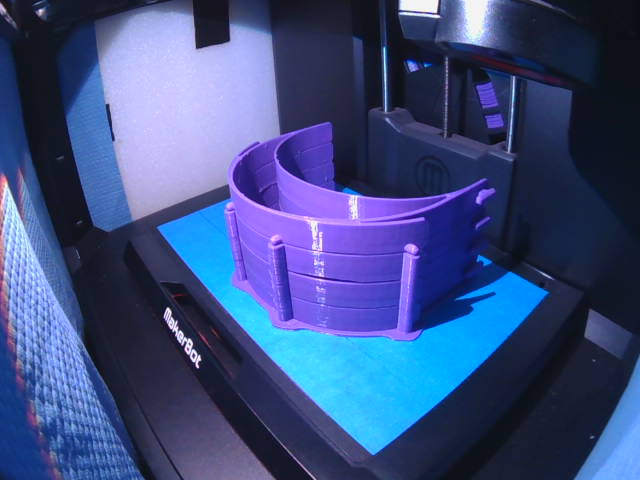Two tribal colleges are using their 3D printers to manufacture protective face masks for local health workers.
By Katie Scarlett Brandt

As the coronavirus spreads across Indian Country, two tribal colleges are stepping up to keep frontline responders safe by using their 3D printers to produce face shields and face masks.
At Navajo Technical University (NTU), located in Crownpoint, NM, the Center for Advanced Manufacturing has used 3D printers to create 50 face shield headbands so far. The headbands run the circumference of the wearer’s head and clip onto a plastic shield, which covers the face to prevent respiratory droplets from reaching the wearer’s nose and mouth.
The project began in early April when Eunique Yazzie of the IndigeDesign Collab in Phoenix contacted NTU about partnering to create protective face shields for the Indian Health Service. NTU agreed to produce the headband part of the shield, while the Collaborative created the plastic guard that blocks the face.
“It really wasn’t that much work,” said Scott Halliday, Digital Technology Center Coordinator at NTU. We had to fix a couple of files first because they were poorly printing, but once we solved those issues, it’s just a matter of coming in and starting the print,” Halliday said.
A stack of four headbands requires five hours of print time, and the lab has three 3D printers. Because NTU has suspended all face-to-face instruction, lab staff, along with a student who lives nearby, print the headbands on a rotating schedule. The process requires someone to enter the lab to start the printers, which members can then monitor online from home.
Once the lab receives the clear plastic shields from the Collaborative, three NTU lab members don protective helmets and gear in order to sanitize the products by dipping them in an alcohol or bleach blend. The face shields are then shipped to Tuba City, Arizona, where they will be distributed to local Indian Health Service facilities.
According to NTU President Elmer Guy, online-only instruction will continue through the end of April, and likely through the end of the year. The Navajo Nation has been particularly hard hit by the coronavirus. With more than 1,000 confirmed cases, the tribal government has imposed strict stay-at-home orders and weekend-long curfews.
Even though these orders keep students from being directly involved in production, they’re aware of the efforts. “This is a real-world situation where students can really see that when things aren’t available, additive manufacturing (3D printing) is a good option. It brings that to life for our students,” Halliday said.
For Halliday, it’s all about serving the community. “It helps, first of all. As many as we can print, helps.”
A similar project is also underway in the Upper Peninsula of Michigan where the advanced manufacturing program at Bay Mills Community College is also producing face masks for workers. They initially set out to produce 500 face shields, but the demand greatly exceeded that number — into the thousands.
Katie Scarlett Brandt is a freelance writer based in Chicago and a regular contributor to Native Science Report.
